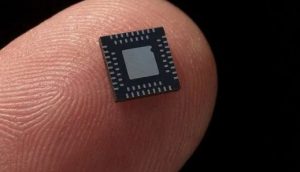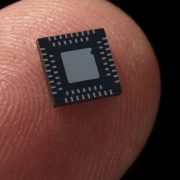Taiwan Restricts Russia, Belarus to CPUs Under 25 MHz Frequency
By Anton Shilov
5 days ago

From now on, Russian and Belarusian entities can only buy CPUs operating at below 25 MHz and offering performance of up to 5 GFLOPS from Taiwanese companies. This essentially excludes all modern technology, including microcontrollers for more or less sophisticated devices.
Due to restrictions imposed on exports to Russia by the United States, United Kingdom, and the European Union, leading Taiwanese companies were among the first to cease working with Russia after the country started full-scale war against Ukraine in late February. This week Taiwan’s Ministry of Economic Affairs (MOEA) formally published its list of high-tech products that are banned from exportation to Russia and Belarus, which prevents all kinds of Taiwan-produced high-tech devices as well as tools used to make chips (whether or not they use technologies originated from the U.S., U.K., or E.U., which were already covered by restrictions) to be exported to the aggressive nation.
Items banned from exportation to Russia and Belarus are pursuant to Category 3 to Category 9 of Wassenaar Arrangement , which covers electronics, computers, telecommunications, sensors, lasers, navigation equipment, maritime technology, navigation, avionics, jet engines, and a number of other categories.
Since the arrangement was adopted by 42 states in the mid-1990s, the restrictions may seem a bit archaic when it comes to computers and electronics, but this actually makes them even more severe for Russia and Belarus (the country used to help its neighbor to get around sanctions).
Starting today, Russian entities cannot buy chips that meet one of the following conditions from Taiwanese companies, reports DigiTimes :
- Has performance of 5 GFLOPS. To put it into context, Sony’s PlayStation 2 released in 2000 had peak performance of around 6.2 FP32 GFLOPS.
- Operates at 25 MHz or higher.
- Has an ALU that is wider than 32 bits.
- Has an external interconnection with a data transfer rate of 2.5 MB/s or over.
- Has more than 144 pins.
- Has basic gate propagation delay time of less than 0.4 nanosecond.
In addition to being unable to buy chips from Taiwanese companies , Russian entities will not be able to get any chip production equipment from Taiwan, which includes scanners, scanning electron microscopes, and all other types of semiconductor tools that can be used to make chips locally or perform reverse engineering (something that the country pins a lot of hopes on).
Speaking of chip production in Russia, it is interesting to note that MCST, the developer of Elbrus CPUs, is negotiating with Russian contract chipmaker Mikron to make processors domestically, according to RBC . MCST’s most advanced Elbrus chip was made at TSMC using the company’s 16 nm fabrication technology. By contrast, Mikron’s most advanced node is 90 nm.
Furthermore, without spare tools and/or spare parts, only time will tell whether the chipmaker will be able to kick off high volume manufacturing of Elbrus CPUs using its 90 nm node and whether a more advanced node can be used at Mikron’s fab.




